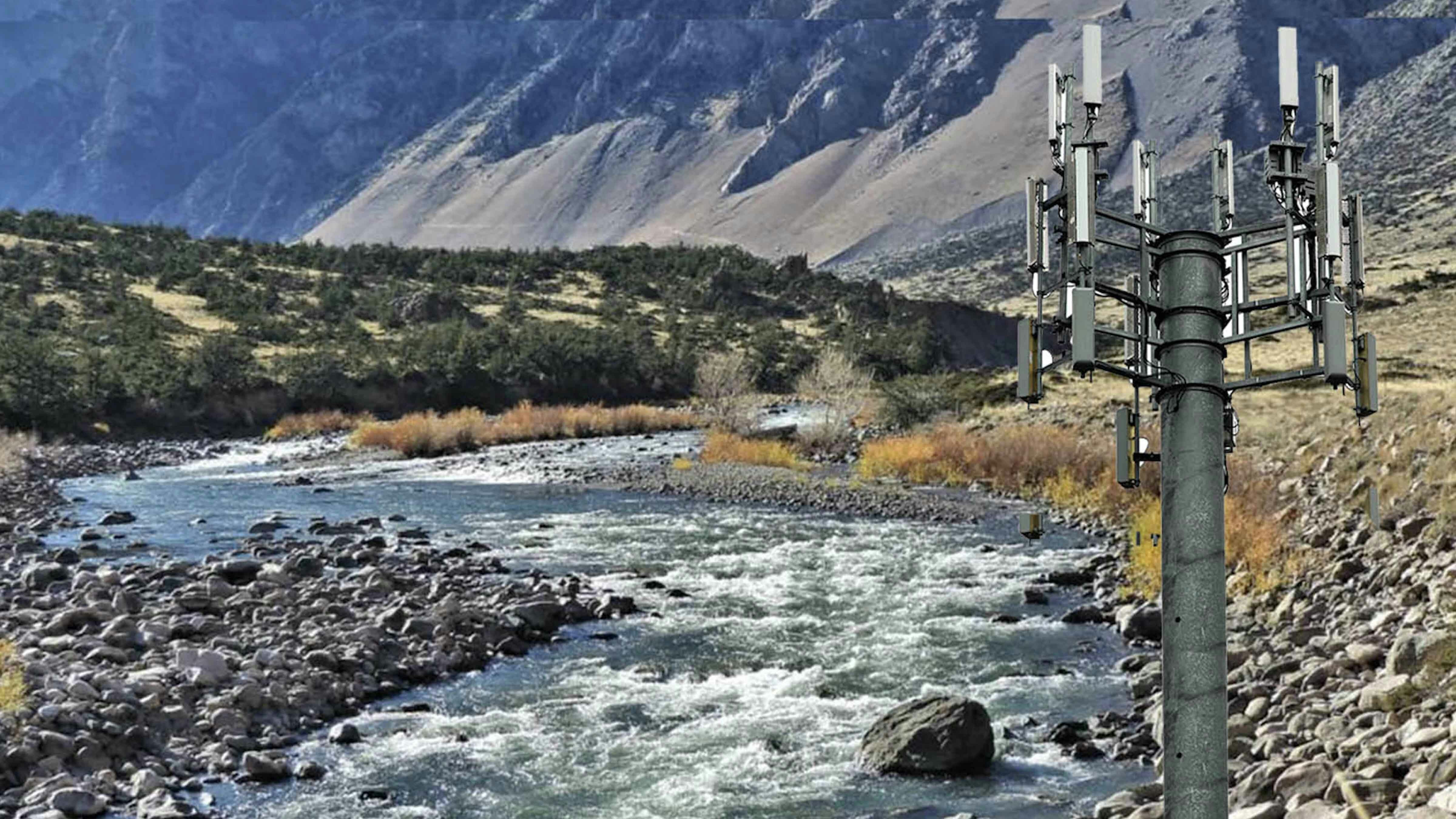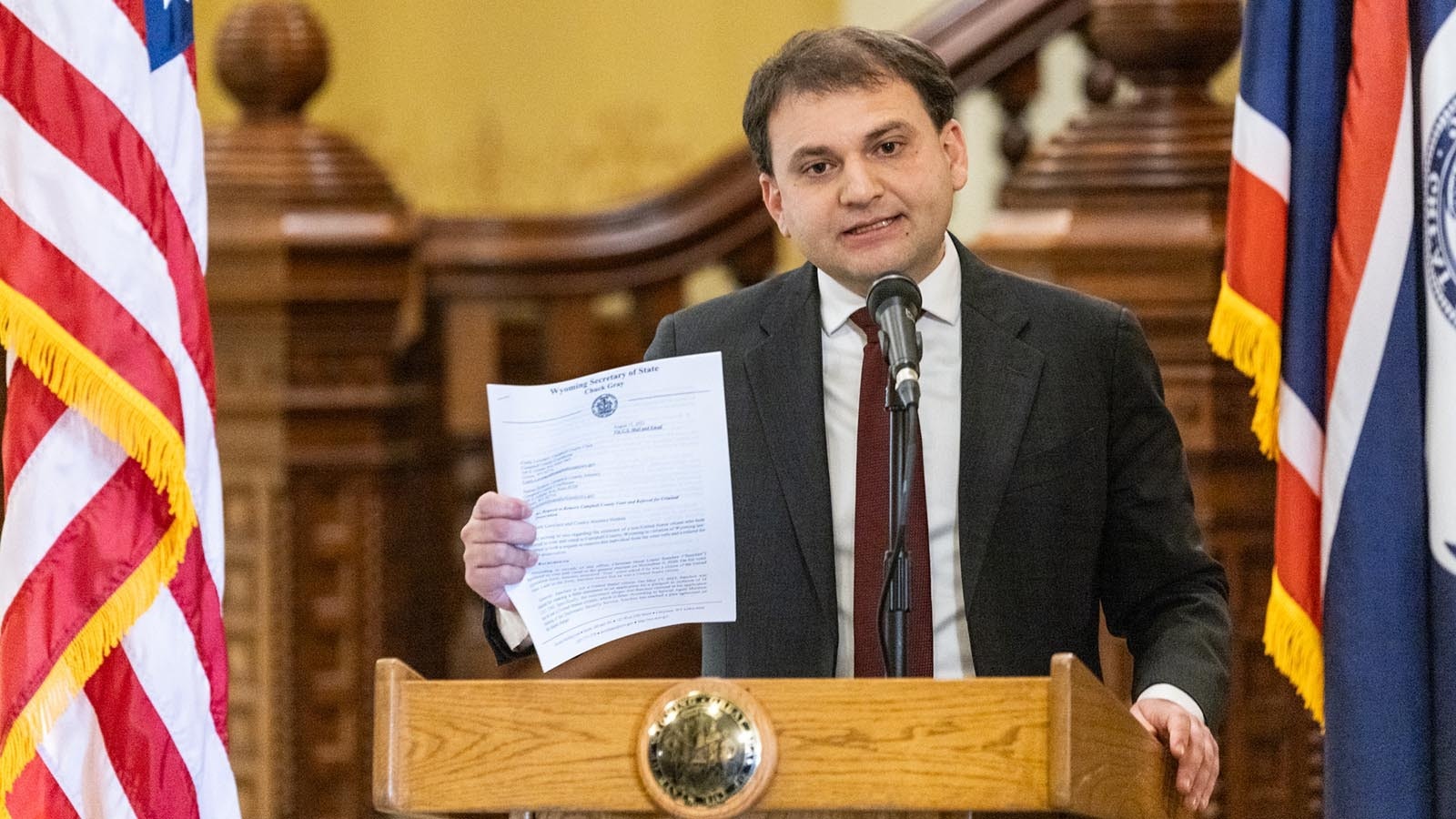A Wyoming federal judge has denied the bid by several Wapiti residents to join a lawsuit to ward off a proposed new cellphone tower in their neighborhood.
“If the Court were to allow intervention by any neighbor or member of the community whenever a zoning decision was in dispute, it would open the floodgates for unneeded secondary argument,” wrote U.S. Magistrate Judge Kelly Rankin in a Thursday order denying the intervention in a lawsuit against their county government.
Horizon Tower LLC sued the Park County Commission in March because the commission denied Horizon’s special-use permit request to build a 195-foot cellphone tower for Verizon and other service carriers in the Wapiti valley.
Horizon’s lawsuit alleges that Park County violated a federal law prohibiting state and local governments from interfering with the provision of wireless services. Horizon also claims that even if the county board had the authority to deny the company’s permit, it didn’t have “substantial evidence” to do so.
A group of Wapiti residents asked the federal court judge in June to let them intervene in the case to fight for their scenery, property values and the integrity of their land in the lawsuit.
Those residents are Brian Clarkson, Erik Kinkade, Lucinda and Kurt Countryman, Hannah Vorhees and Jim Wilder, Michael Gimmeson, Robert A. Nelson, College Monahan and the Wapiti Valley Preservation Group Inc.
It’s How We Read This Law
Rankin’s Thursday denial says the residents failed to show they have a stake in the actual issues of the case: namely, whether the Park County Commission followed the federal law.
“From the plain language of the statute, (the residents) could have no substantial interest to defend,” wrote Rankin. “What is at issue here is what the Park County Board of County Commissioners decided. It is not an opportunity for local residents to proffer new evidence or arguments of how they may or may not be harmed by the construction of a cell tower.”
The residents had their chance to protest when they offered public comment to the commission during Horizon’s permit application and denial.
“Federal law and its interpretation control the issues now,” wrote Rankin.
Two Roads
If they’d risen to the criteria, the residents had two avenues for entering the case: proving they had a right to intervene or asking Rankin to let them intervene on his discretion.
They fell short of both, Rankin ruled.
Judges can let intervenors into cases if the intervenors make the request on time, and if it won’t cause unnecessary delay and prejudice.
With many exchanges in this case already underway, Rankin decided the residents’ also would unduly delay or prejudice the judgment in the dispute between the county and Horizon.
This Private Lease
Also noteworthy, wrote Rankin, is Horizon’s private-land lease to build the tower on the land of Wapiti landowner Tamara Young.
A federal court is not the place for neighbors’ grievances against such arrangements, but local governments’ public-comment processes are, the judge wrote.
The Horizon vs. Park County Commission case is ongoing in the U.S. District Court for Wyoming.
Clair McFarland can be reached at clair@cowboystatedaily.com.





